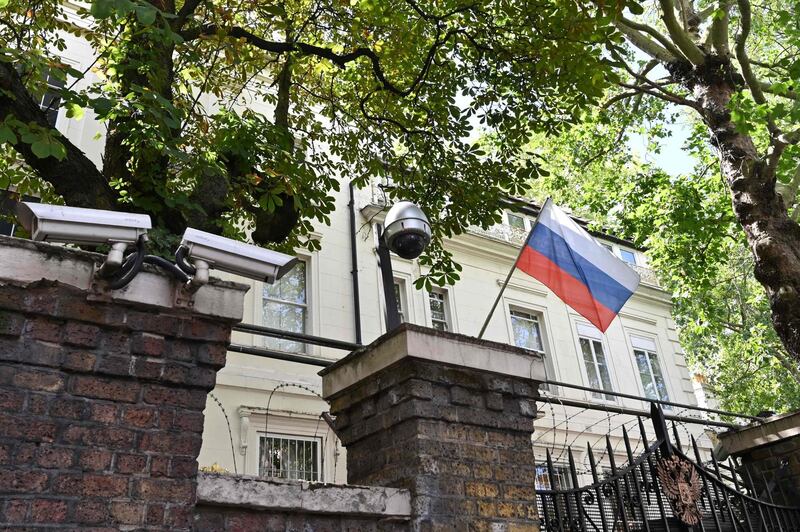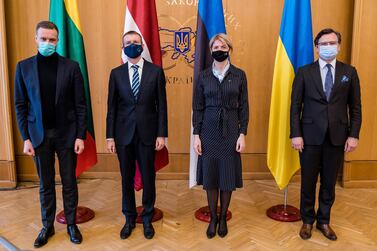Britain on Thursday said it summoned the Russian ambassador in the UK to express its deep concern at what it called Moscow's "pattern of malign activity".
The Foreign, Commonwealth and Development Office said that included "cyber intrusions, interference in democratic processes, and the build-up of military forces near the Ukrainian border" in Crimea".
It came on the same day the US announced sanctions and the expulsion of 10 Russian diplomats in retaliation for what it says was the Kremlin's US election interference, a major cyber attack and other hostile activity.
The British government said it made clear its support for the actions announced by US President Joe Biden.
Russia's top envoy in London was called in to see the foreign office's Permanent Undersecretary, Philip Barton.
"He set out the UK assessment that the Russian Intelligence Services were behind the SolarWinds compromise," a foreign office representative said.
SolarWinds was a hack last year that cyber-security experts and western nations blamed on Russia.
"He informed the ambassador that the UK will continue to work with our allies to call out and counter malign operations by the Russian Intelligence Services," the representative said.
Mr Barton also stated Britain's concern at the recent build-up of Russian military forces near the Ukrainian border and in Crimea, which Moscow annexed in 2014, they said.
"These activities are threatening and destabilising," they said. "Russia needs to cease its provocations and de-escalate tensions in line with its international obligations."








